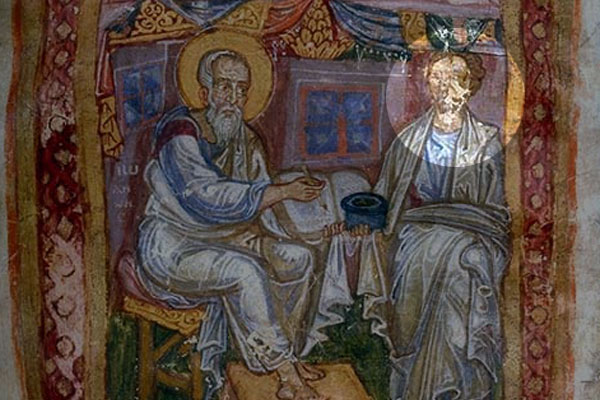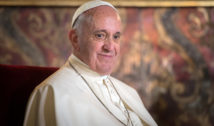
Who Was Marcion and What Can He Teach Today’s Christians?
- By Emily Murdoch --
- 25 Sep 2014 --

Apostle John (left) and Marcion of Sinope (right)
Many do not know who Marcion was, but he was a leader in early Christianity. His beliefs were radical, but today’s Christians can still learn from him.
Most people in the world have never even heard of a man called Marcion of Sinope, but although he lived a very long time ago, he had a significant influence on the way that Christianity developed from the second century C.E. onwards. After all, he was there.
Finding Christianity
Marcion lived only one hundred years after Jesus died, and during this time many of the Church’s teachings were in flux. There was a huge amount of debate going on, and there had not been long enough for precedent to really have been established. One of the major debates that rose again and again was exactly how much of the Jewish faith should be incorporated into the Christian faith. Some believed that almost all of it should, and almost everyone believed that they could not simply abandon their Jewish roots. But Marcion felt the opposite.
The Marcion Bible
He believed the Jewish traditions should not be continued by Christians because he thought they were two completely separate religions, with different gods. The God of the Old Testament and Jesus, Marcion argued, were not the same. In his design of the Bible, there is no reference to the Old Testament prophets. This of course is completely different from modern Christianity. Marcion organized the very first church council of leaders in Rome, and put forward his case: but they simply could not be persuaded that God could be two separate ideas, and rejected Marcion’s teachings.
Marcionism in Modern Times
The faith that Marcion believed did become very popular, and for about a hundred years there were almost just as many followers of Marcion Christianity as what we would consider “normal” Christianity. Some people believe that Marcion Christianity can be helpful to people today because it champions the goodness within individuals, and the belief that everything bad will eventually be defeated. Besides preaching the power and success of goodness, he also emphasized the spirituality of the faith. He valued the spirit over the material body similar to Buddhism. However, he took his beliefs too far for the early members of the church as he preached that Jesus was purely divine with no humanity, a heresy to modern Christian interpretations.


















